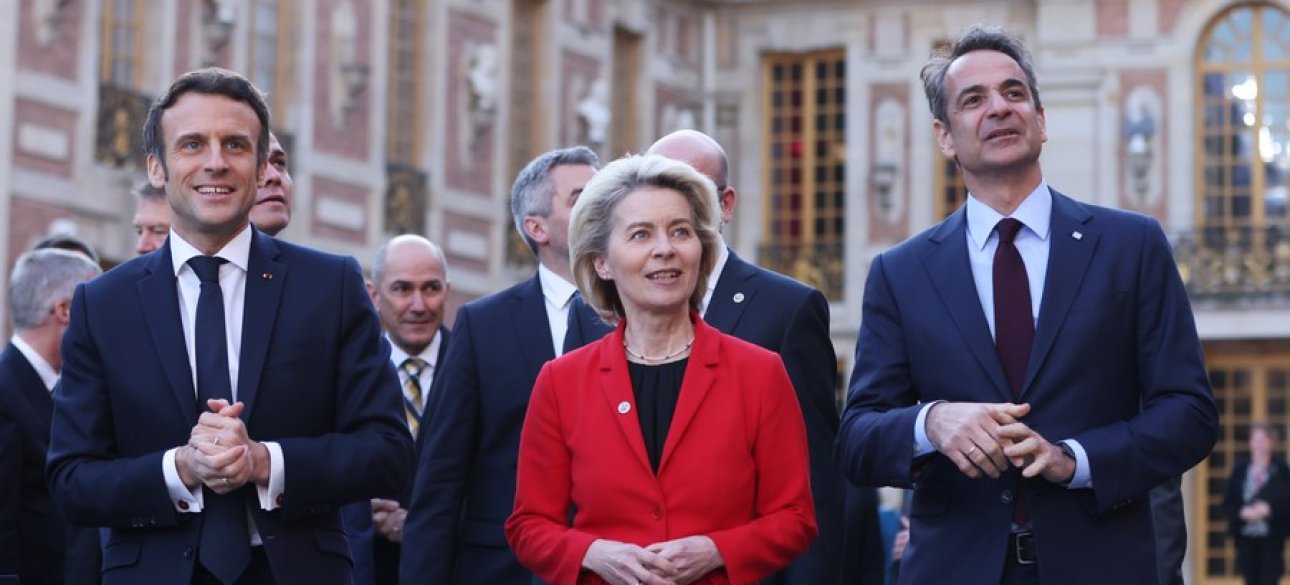
 By Eliza Popova
By Eliza Popova
Led by Kaya Callas-the former Prime Minister of Estonia, and now the head of the EU foreign policy and security department-leaders have confirmed their support to Kiev. The Chairman of the Council of Anthony Right stated that "only Ukraine can determine the conditions of peace," and the chairman of the Ursula Der Liaien commission stressed the need to support President Zelensky, hinting at progress in Ukraine's application for joining the EU.
However, the historical summit has not made unity, but the cracks that quickly followed it. "In the EU, you have no consensus, and if you do not have a consensus, you cannot act on behalf of the European Council," Hungary Prime Minister Viktor Orban said loudly, who has long since attempting to develop a consistent European position on Russia. Von Der Liaien confessed: "We also need to know more about the plans of the next US administration at the EU level.
" And here is the essence of the question. Despite the warning that Trump's presidency is a real opportunity, Europe has not been able to develop a reliable, independent strategy for 2024, which would not depend on the US. Now the fate of Europe - and Ukraine - still depends on the good of the ally, which may soon be unreliable.
Therefore, historians can look at this meeting as a recognition of Europe in that it has no choice but to look for a festive miracle on the other side of the Atlantic, hoping that Donald Trump will soon conclude a favorable peace agreement with Vladimir Putin. But all this is based on one huge assumption - that Russia will sit at the negotiation table in early 2025.
No one looks like: what if not? Given the dynamics of the fighting and the goals of Moscow, many convincingly state that Putin will continue the war as long as the economy enables him. In January, the Kremlin can take a reconciliation position, declaring readiness for constructive negotiations, but what if its proposals are unacceptable to Ukraine and its allies? This is the most important question that seems almost completely ignored in Europe.
For America, the choice can be simple: withdraw troops. What to do in Europe that could not properly prepare for such a scenario and still cannot let Kiev fall? Reflecting on this hopeless situation, I remember the call of Woodra Wilson in 1917: "Only calm Europe can be stable Europe. It should not be a balance of power, but a community of forces; not organized rivalry, but organized common peace.
" Although the League of Nations Wilson failed, his belief that higher values are more important than gross power, survived it, especially after the UN creation at the end of World War II. However, today, many seem to have abandoned these principles in the West, instead accepting the language of gross power: "balance of power" and "spheres of influence" - the terms we hear too often.
Such concepts are inferior to the moral positions of authoritarian regimes, allowing them to claim legitimacy where it is not. The rejection of the principle that the people have the right to determine their future, is equivalent to democracy as such. However, many do so when they claim that "NATO has come too close to Russia - Putin has the right to be upset. " Ukraine at polling stations sought the future closer to Europe and away from its former imperialist loans.
Putin had no right to interfere with force - it must be admitted if you do not want you to be guided by the rules of the nineteenth century. I remember this because at a moral point of view the event should not negotiate, it should seek the defeat of Russia. The inability to do this reflects a dangerous indulgence based on false ideas. Even if the negotiations continue, their results can be very deplorable.
As an alternative, Putin may pretend to be conscientious by delaying the negotiations until the war continues and then propose a terrible agreement: to give way to Ukraine or Europe or Europe. Recent geopolitical shifts - first and foremost, the collapse of one of the most violent regimes in the Middle East - added the strength to those who claim that dictatorial regimes seem strong until they suddenly get lost.
The consequences of this are really significant, especially given that Donald Trump can return to the White House - a person who supports the winners. Russia's recent defeats can force him to consider Moscow as a burden, especially if its economy is in a state of free fall, as some predict. Already, the ruble falls, the essential goods are becoming expensive, and the costs of defense are increasing. It can't last long.
But can it last long enough? At best, if Russia refuses to negotiate serious negotiations, the narrative may change, and Moscow - not Kiev - will become the main obstacle to peace. At this point, Washington may decide to double the support of Ukraine, strengthen its levers of influence on the battlefield and may have to force Moscow to go into serious negotiations. But this is the most optimistic scenario - and even it implies a longer and more bloody war.
That is why for Europe it was so catastrophic not to demonstrate its ability - both moral and military plan - to support Ukraine not only in the struggle, but also in a potential decisive victory. When you are inferior in arguments, you are ultimately inferior to the territory. Such is the price of inactivity. And innocent people die. The author expresses a personal opinion that may not coincide with the editorial position. The author is responsible for published data in the "Thought" section.










All rights reserved IN-Ukraine.info - 2022